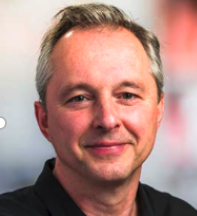Antonio
Bedalov
M.D.
Ph.D.

(206) 667-4863
Fred Hutchinson Cancer Center
1100 Fairview Ave. N, D2-190
Seattle, WA 98109
Photo: Fred Hutch
Education, Training, Board Certifications
- M.D., University of Zagreb, Croatia
- Ph.D., University of Zagreb, Croatia
- Residency, Baylor College of Medicine
- Fellowship, UW
- Medical Oncology, American Board of Internal Medicine
- Internal Medicine, American Board of Internal Medicine
Clinical Expertise
- Hematopoietic stem cell transplantation
- Gene therapy
Affiliations
- University of Washington
- Fred Hutchinson Cancer Center - Faculty & Lab
- Fred Hutchinson Cancer Center - Provider
Publications
Research and/or clinical interests
Dr. Antonio Bedalov studies chromatin, the material that makes up the chromosomes of humans and other eukaryotes. He is learning how chromatin modifications influence important biological events within the cell’s nucleus and, in turn, how they affect development, aging and cancer formation. He also applies this knowledge to lay the groundwork for potential new therapies to treat cancer and other diseases. He has three main research areas. First, he studies how cells regulate the transcription and replication of repetitive DNA sequences. He also studies what happens when these processes break down. Second, Dr. Bedalov is developing potential cancer drugs called sirtuin inhibitors that affect a cell process for regulating gene expression. Dr. Bedalov and collaborator Dr. Julian Simon identified the first sirtuin inhibitors, including one with potent cancer-killing abilities in lab studies. Third, Dr. Bedalov studies X-chromosome inactivation, in which the cells of females silence one of their two X chromosomes. He is interested in manipulating this process as a therapy for Rett syndrome, a genetic disorder that results from a broken gene on one X chromosome.



